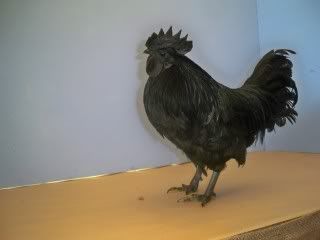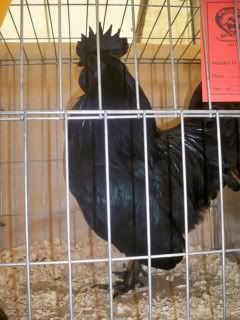A
Anonymous
Guest
Just wondering what the rare breeds are in poultry? I know the RBST do a list, but it doesn't cover turkeys,geese, and ducks as far as I know. Thank you  99
99


Hi Chris. Yes before I looked into it I was thinking, get a rare breeed and breed it on true to standard, and sell them and try to make it less rare. What a noble thing to do. But I don't know it very seldom seems to happen that way. Standards change SO easily! There are loads of breeds, perhaps most of the older ones, that if I turned up at a show with the true macoy original breed, it would be chucked out as not conforming! I wish there was a way of setting standards more rigorously in older breeds, before they disappear completely. For modern breeds of course it doesn't matter so much. They don't have such valuable genetic history.chrismahon said:Went to Ashby show and met Ruth Dalton, the RBST Field Officer for the North. She gave us a leaflet called 'Poultry Breeds at Risk' which seems to list most of the established Pedigree breeds anyway. Even Buff Orpingtons are listed as are the aforementioned two. Marsh Daisys are listed, but the last few years has seen a brisk trade in hatching eggs so I wouldn't say they were rare now. The Marsh Daisy Club has even started to breed odd variations with some significant original traits missing or reduced. If you do help a rare breed I believe you need to be sure that you are working with the original strain and not some modern show variation. Orpingtons were a Utility breed but many have lost their egg laying capacity in the quest for better colouration and characteristics for show. We are trying to recover Blue laced Wyandotte's utility characteristcs for our own benefit but realistically we should go back to the Original White variety. It seems that the blue lacing brings with it some strange character disorders and the least blue we have lay the best and are the nicest natured. So I suppose what I am saying is what does rare mean? Is it few numbers of birds in total or few original breeding strains remaining. Perhaps someone has given this issue more thought than me and has some better ideas?
